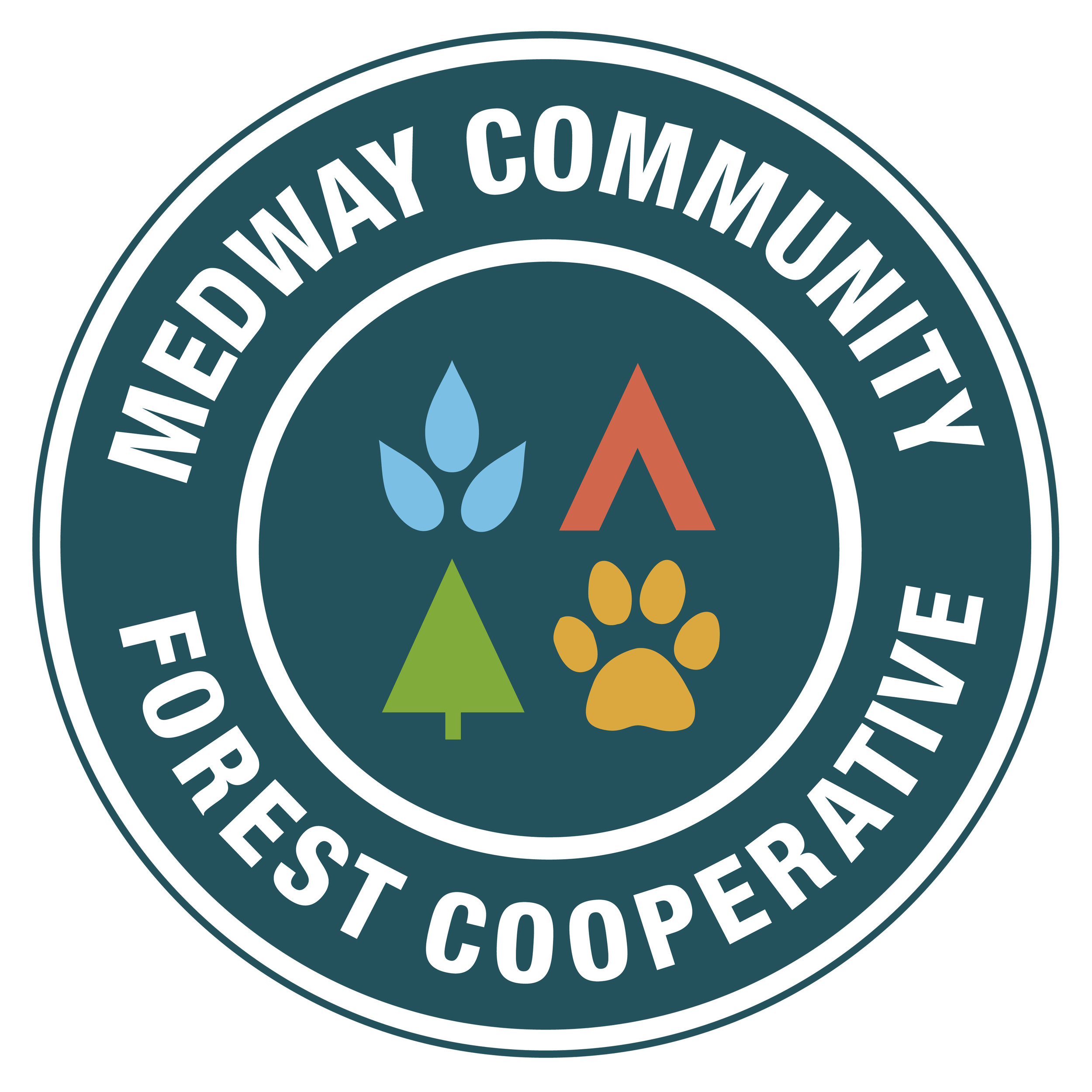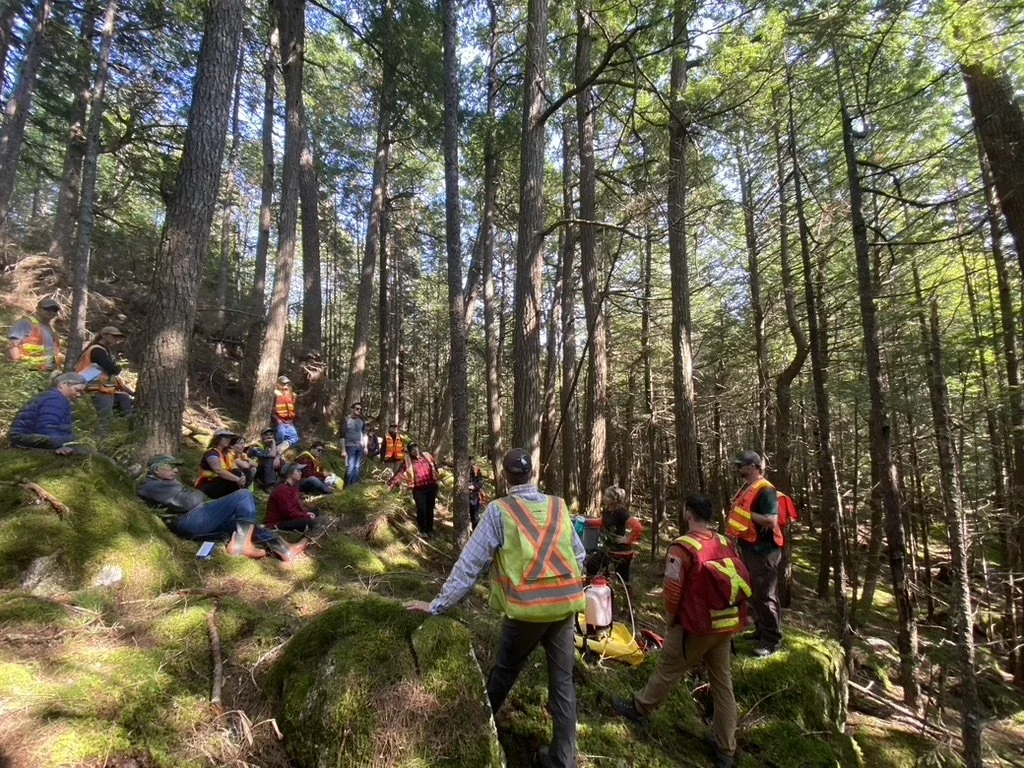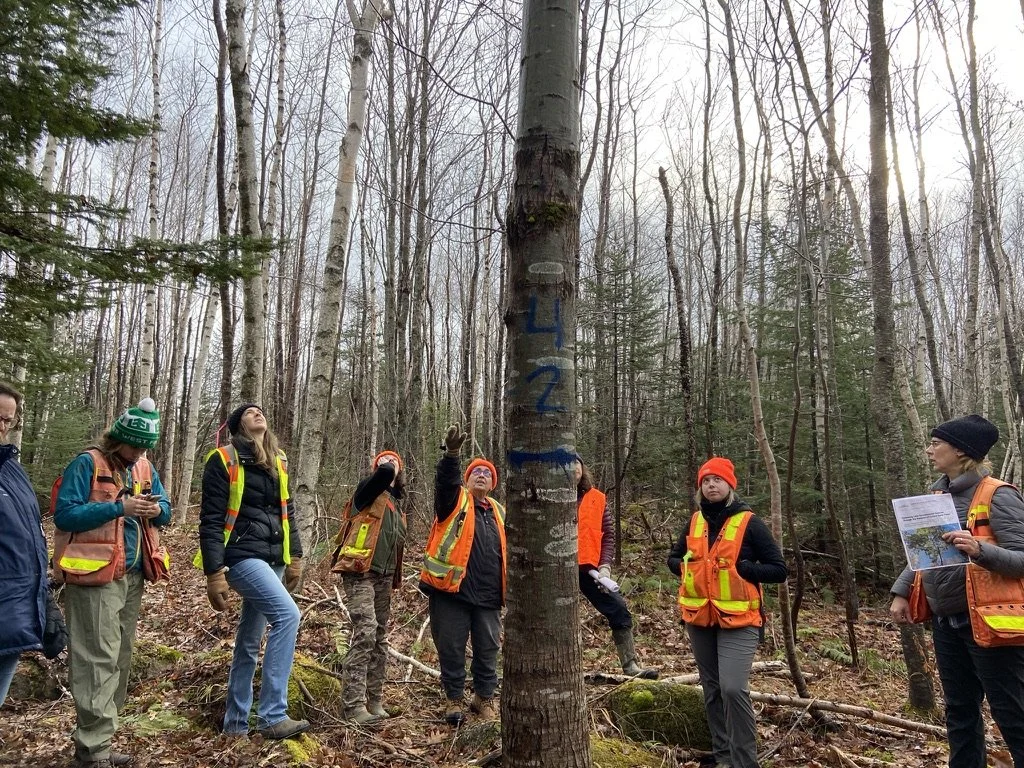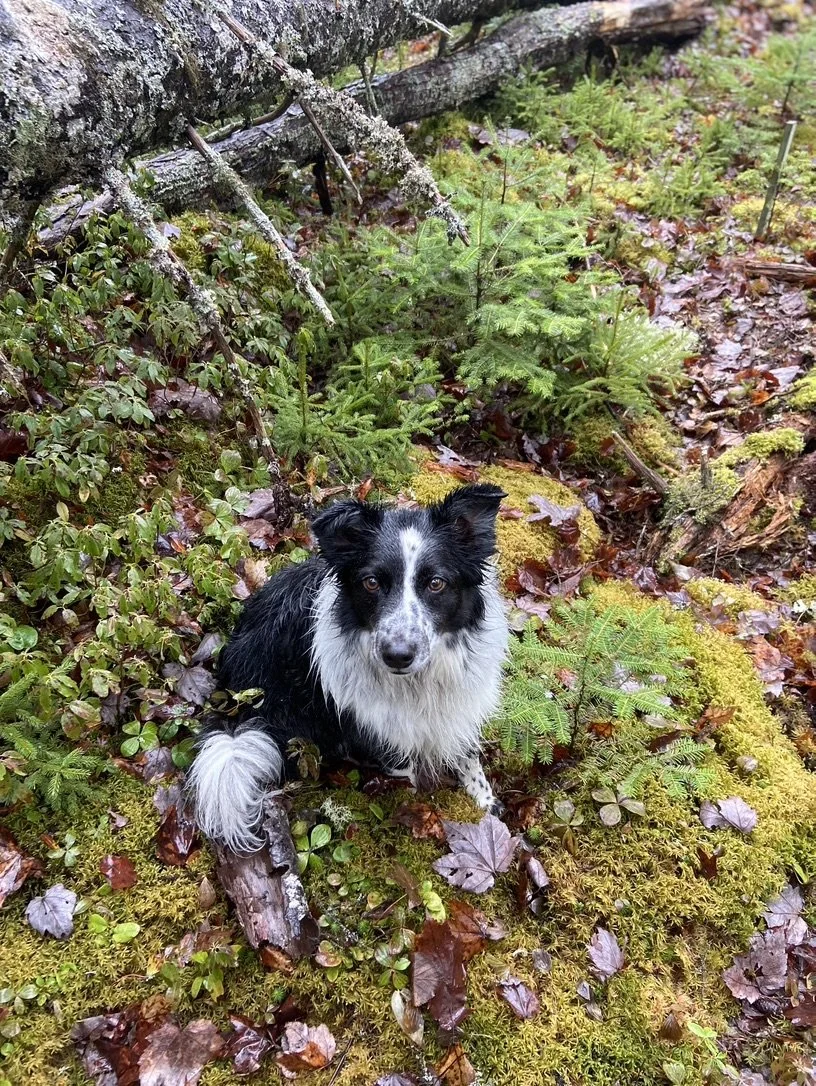Fall Newsletter 2023
We finished 2023 on a high note after a huge year with some significant changes. Overall, 2023 was a whirlwind, with the launch of our Hemlock Conservation Initiative, new species at risk detections, and rapid growth of our affiliate organization, the NS Working Woodlands Trust. We also had several changes in our staff - our past Executive Director, Mary Jane Rodger, decided to leave her position with Environment and Climate Change Canada and return to both the MCFC and the NSWWT. We also said goodbye to our land trust and outreach manager, Jennika Hunsinger, who embarked to Central America for work and travel. We are grateful for Jennika’s efforts over the past 4 years with the MCFC and the NSWWT, and wish her the best in this next chapter. Overall after a busy year, our staff are looking forward to starting 2024 with new leadership and capacity.
Along with Mary Jane’s return, we hired a new land trust manager, Mhari Lamarque in September who will be working exclusively for the NSWWT. Mhari comes from a background in agriculture, conservation and landowner engagement and is a farmer and woodlot owner herself, residing in Lunenburg County. We will also be welcoming more new staff to the NSWWT this year, including Shayla Nickerson, a forester-in-training, as our Stewardship Coordinator.
Keep posted for several new positions coming out this month including positions with our Hemlock Woolly Adelgid Strike Team, our summer outreach coordinator, and our new campground attendant – all great opportunities for students who love working in rural communities and the outdoors!
NS Working Woodlands Trust Update
We are thrilled to announce that as of November 28, 2023, the NSWWT is now designated to hold easements under the Community Easements Act. This has been a long road for us, over 2.5 years - but finally our persistent efforts have paid off! This is a significant step in bringing our vision of long-term stewardship and conservation of working woodlands in Nova Scotia to life. Evidently this is tremendously exciting news for our team, we could not have done this without the support of the landowner community and the forest and conservation professionals who serve the Wabanaki-Acadian forest.
As the NSWWT embarks on this new chapter, we will work more closely with private landowners who want to ensure the long-term protection and stewardship of their woodlands. If you are interested about putting a working forest easement on your land, please follow the button below to fill out a form describing your land and stewardship values.
Outreach Update
Many of us in the forestry world say that the fall is the best time of year to be in the woods, and the staff at MCFC couldn’t agree more. We have been busy with harvest planning work in anticipation of upcoming winter harvests, continuing to develop our self-service campground near Stave Lake, hosting outreach events for a variety of different groups and completing silviculture work on the license area.
Throughout the late summer and fall we hosted several events in MCFC’s license area. In August, we hosted students from Dalhousie University for an Environmental Science Field Course. The students participated in an exercise to classify forest vegetation communities and soil types and learned how this information is integrated in MCFC’s forest management planning process.
In September, as part of National Forestry Week, MCFC partnered with the Nova Scotia Registered Professional Foresters Association and the Nova Scotia Forest Technicians Association to host an operations tour. The tour featured an introduction to MCFC’s Hemlock Conservation Strike Team program and stops at various forest operations sites, highlighting our work with Dalhousie University and Mersey Tobeatic Research Institute to apply Beneficial Management Practices for at-risk bird species. Through this work our partners have recently discovered chimney swifts utilizing a cavity in a large white pine tree, believed to be the first natural roost site found in Nova Scotia in decades!
MCFC Board member, Donna Crossland explaining HWA chemical treatments at our forest professionals tour.
At the future MCFC campground, we recruited The Howl Experience, an experiential learning program that engages youth from across Canada in immersive, community-based learning experience in October to help with some upgrades. The Howl team learned about MCFC and our ecologically based, multi-value approach to community forestry and got their hands dirty clearing campsites and maintain trails at the future site of the MCFC campground. This fall we also completed more infrastructure upgrades with Oneric Excavation and Forestry, including the installation of two outhouses. We’re very excited to share this offering with the local community and planning to have several sites ready for a May 2024 opening!
In November, we hosted students from the Lunenburg campus of the Nova Scotia Community College’s Natural Resource & Environmental Technology program. This tour was focused on our silviculture program and students learned about the pre and post treatment assessments that are completed as part of our pre-commercial thinning (PCT) and crop tree release (CTR) treatments.
Several staff joined the Women in Forestry mentorship group this fall for a day of learning at Debbie Reeves’ woodlot in Forties.
Forest Management Update
We have been working with Brown Bear Forestry Ltd. of Chester to complete PCT and CTR silviculture work throughout the MCFC license area. These silvicultural interventions will help to increase the growth and quality development of treated stands while also improving the climate resiliency of the forest by promoting species that are expected to continue to grow well as our climate changes, while supporting biodiversity.
We are planning our next harvest with Freeman’s Lumber and R&C Weare Logging in the Snowshoe Lakes area of the Medway in mid-January. Our harvesting operations have been slow this fall, but hoping that 2024 will be the year we hit our stride and able to consistently have ecological forestry operations rolling outside the migratory bird breeding season.
Many of you might recall our management planning process that occurred in 2016, and it’s now time to revisit that process and form a new forest stewardship plan. We have recently been awarded a forest innovation voucher from the Nova Scotia Community College to fund a new forest management model to support forest operations planning and inform the calculation of our annual allowable cut. Creating this model will ensure that MCFC best management practices including our breeding bird season will be reflected when calculating our threshold for sustainable timber harvesting. The voucher will also fund a desktop archeological screening of the entire MCFC license area, to highlight key areas to avoid when planning harvest operations that may intersect with Mi’kmaq historical use. Along with gathering this new data, we will be hosting public meetings to inform the management plan later this spring to gather insights from our membership.
Everyone is very happy to have Mary Jane’s canine companion, Pearl, return to help in the field (let’s face it, far more excited than the return of Mary Jane herself).
Research Update
The MCFC is one of many partners involved in the Ecological Forestry Research Initiative that was recently awarded $1.57 M from Research Nova Scotia. Through the EFRI, MCFC has partnered with Anthony Taylor from UNB to conduct research on the effectiveness of tree marking to support selection management. Tree marking has been a staple of MCFC operations for years, and we’re looking forward to gathering data to prove it is a worthwhile practice for operational efficiency and to help preserve biodiversity features on Crown Lands. We are currently looking for a passionate and driven student interested in pursuing an MScF, please see the full posting via the UNB Forest Management Lab.



